Almost Ivy: Examining Tulane’s reputation as a backup for Ivy League schools
September 27, 2018

The Tulane Hullabaloo is a nonprofit newsroom that receives no funding from Tulane University. Consider subscribing today to support our mission.
After a 30-hour flight and two days of jet lag recovery, current sophomore Xin Dong listened to jazz music in the French Quarter of New Orleans. Dong said, as she observed the French Quarter, she immediately loved the culture of the city. Though she had never been to New Orleans before moving to Tulane, Dong said she was excited to spend time in her new environment.
Originally from Beijing, Dong chose to travel across the world for college. As a nationally-ranked university, Tulane attracts a wide range of students from around the globe.
Some students say they view Tulane as a backup to the Ivy League schools, which begs the question: How do students like Dong decide to spend four years in a city 7,300 miles from home in order to attend Tulane, while others see Tulane as the Ivies’ less-academic counterpart?
“I chose Tulane for few reasons,” sophomore Serin Park said. “First, I was rejected from my top two choices, which were University of Chicago and Wellesley College. Second, I wanted to be out of the Catholic school ‘bubble.’”

The Ivy League is a collegiate athletic conference in the Northeast comprised of Brown, Harvard, Cornell, Princeton, Dartmouth, Yale and Columbia Universities and the University of Pennsylvania as Ivy League schools. The connotation of the Ivy League, however, extends well beyond sports.
“Of all institutions of higher learning, these elite schools are considered to be the most outstanding and the most sought-after in terms of acceptance and graduation,” according to an article on Best College Reviews.
For Park and other students, however, Tulane represents more than a safety school. Both the Ivy League schools and Tulane attract students from every states. Additionally, about 11 percent of Tulane students are international, while most Ivy League schools boast a percentage of roughly double that. Yale, for example, admits classes of roughly 20 percent international students.
Many students argue that a college education is what you make of it, regardless of statistics. Sophomore Josh Ballagh was deciding between Tulane, Princeton and Dartmouth when he came to this realization.
“Each school’s campus felt really enchanting in its own sort of way,” Ballagh said. “I think I could’ve been very happy on any of them.”
Nevertheless, his choice in coming to Tulane relied pragmatically on one factor: money.
“What’s more exciting? A letter from Tulane stating that I’d been given the Dean’s Honor Scholarship or a letter from Dartmouth saying that I’d been accepted but would receive $0 in aid of any kind?” Ballagh said. “The first option, definitely. That’s why I’m here.”
Tulane’s generosity in merit scholarships routinely attracts students who might otherwise attend Ivy League schools.
Despite merit aid playing a large role in Ballagh’s decision to attend Tulane, he added that he has never had a moment of self-doubt regarding his decision to attend school here.
“I definitely kept that Dartmouth acceptance letter, don’t get me wrong,” Ballagh said. “It sits right next to my DHS letter on my desk at home, as a sort of reminder that I did indeed make the right decision coming to Tulane.”
Junior Pritika Sharma said Tulane’s academic culture is healthier than many Ivy League schools.
“Tulane is academically very challenging and is a fantastic school, but does not have the kind of toxic atmosphere of competition that exists in many Ivy Leagues,” Sharma said. “I like that about Tulane, and that is why feel it does not really fall into that category.”
Kila Moore contributed to the reporting of this article.




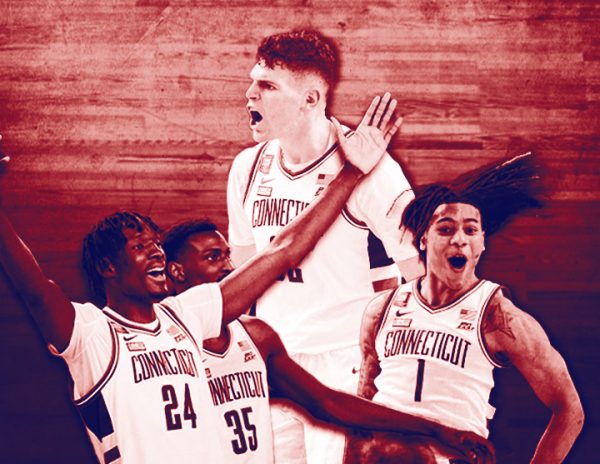
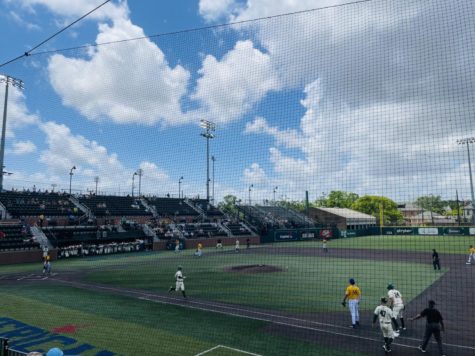

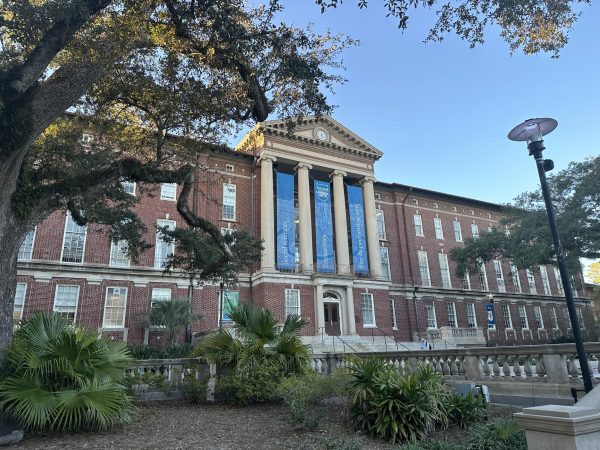
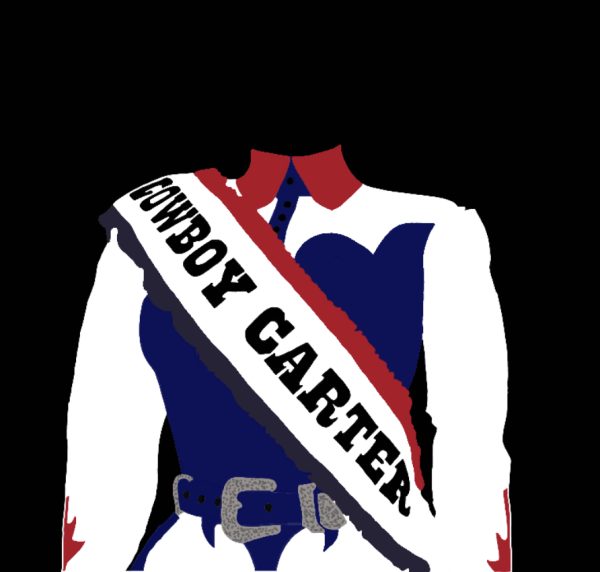

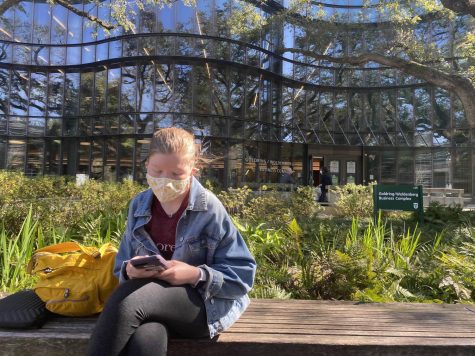

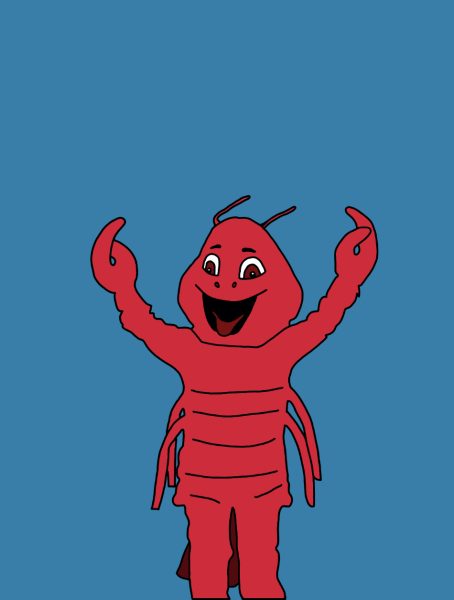










King Watts • Jul 15, 2021 at 4:03 pm
Went to Tulane. Graduated from the Freeman Business School. Enjoyed my 4 years there. My career has been great. Constantly get approached about my Tulane gear as it’s one of the more respected schools in the country. Now they offer free tuition for students from Louisiana in households that bring in <$100k. Great program.
Don't get mad because Tulane doesn't cater to you or worship the ground you walk on. Want that? Go somewhere else. We don't have time to deal with prissy people that need fine crystal for their water.
If you're scared because you heard crime is bad, you may as well move to the woods and never live in a big city, because crime is everywhere. Sounds a little racist to me O_o.
Tulane is safe. It's not in the hood. If you feel that way, I think it's better for both sides if you left and never came back lol. Bougie people<<<<.
#RollWave
Maryann • Mar 3, 2021 at 8:19 pm
My son graduated from Tulane with a degree in Math and Computer Science. He was offered many great jobs from top Corporations. Enough said
@student mom • Dec 21, 2020 at 3:02 pm
Hey sis, with covid most ppl are getting deferred this round so it’s not just you.
Student Mom • Dec 21, 2020 at 6:52 am
Tulane plays too many games. The constant emails, the push fir demonstrated interest then the deferral of most EA candidates.
My daughter has lost interest. I was never interested. Tulane’s stats are not that great. Add in NOLA crime and Hurricanes, we can do better elsewhere.
Brady • Jul 29, 2020 at 3:48 am
You would be a fool to turn down an offer of admission to Stanford or Princeton in favor of Tulane. That is not to say Tulane is a bad school, or even to say it is not prestigious. But it is not Stanford or Princeton. Regarding the financial aid situation, the poster above is correct: the Ivies generally give a free ride to families with incomes less than (IIRC) $150K. So the people getting “need-based scholarships” at Tulane, but not at the Ivies, are coming from wealthy families.
Julissa • Jul 17, 2020 at 3:43 pm
my bad I meant “pretty dangerous place”
Julissa • Jul 17, 2020 at 3:40 pm
I really want to go to Tulane but apparently I’ve heard that New Orleans is a pretty place to be in. I’m starting to be a bit skeptical
paul • Jul 8, 2020 at 9:26 am
I transferred from Tulane to Columbia University in New York. Enough said.
Louisianimal • May 23, 2019 at 8:19 am
Tulane’s prestige has declined. The acceptance rate has gotten lower and applications up but when it comes to important national and international rankings …. Tulane is hardly ever in the top 25 which I would think Tulane should be in. But it does seem Tulane is rarely the first choice of the best students enrolled and I Tulane will be successful when they change that.
MIchael Chep • May 8, 2019 at 3:24 pm
This article highlights the worst Tulane’s academics. “Comprised of” is horrendous.
William E. McHenry Jr. • Feb 11, 2019 at 8:05 am
Kila,
Good morning. If you are really curious about this topic and are looking to do more research on it, review the NY Times article that revealed the incomes of the facilities that the student bodies of universities came from. Given the information there, information provided by Tulane, and information by a few third parties, it appears as though Tulane (and possibly WashU) have carved out a niche among high profile universities in that they have significant non-need scholarships to students that come from wealthy families who would not have received scholarships of that nature in their acceptance packets to Ivy League-ish universities. So, for example, a prospective student that comes from an annual household with an income of $200,000 may get into both Stanford and Tulane, but Stanford would not provide any scholarships while Tulane may provide $25k/year. In this sense, Tulane isn’t truly competing with Stanford in a direct sense, but it is differentiating itself by making it cheaper for that prospective student to choose to attend Tulane. The student may have the money to pay their way at either school, but saving $25k/year means more trips, investment opportunities, and luxury items.
The article touches on this, but may not go far enough to provide a clear understanding of how this works.